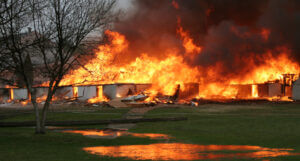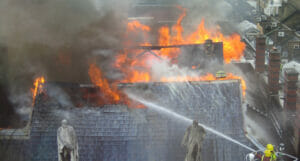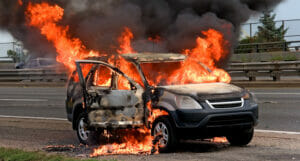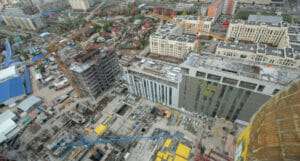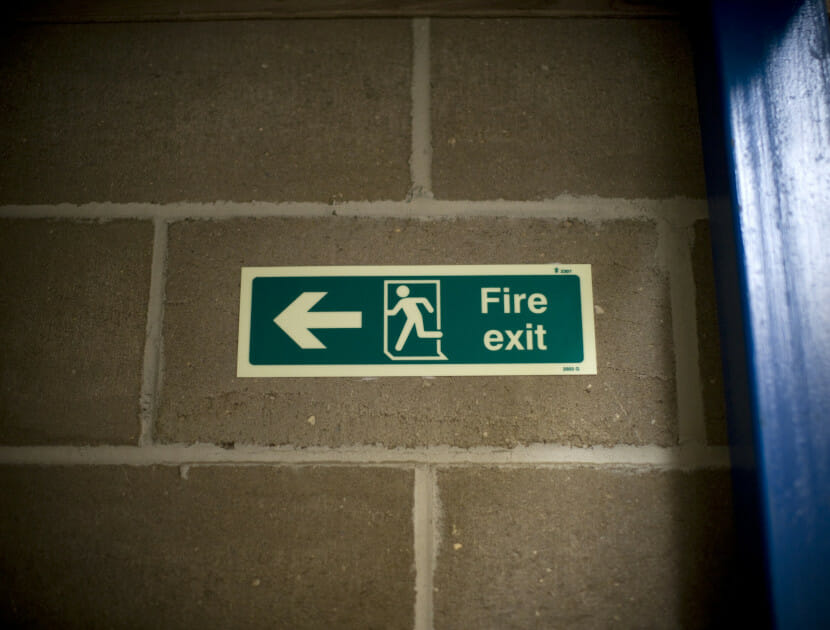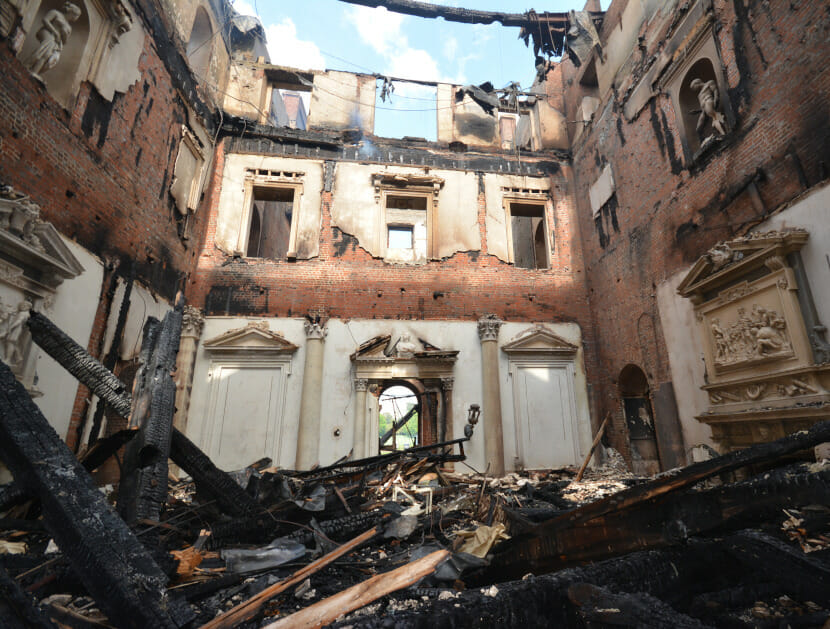Fire Engineering
The potential consequences of decisions regarding fire protection design, construction and management have been highlighted by recent fires in high-rise residential buildings in not only UK, but also the rest of the world. Insufficient consideration of fire safety management and protection provisions can have massive financial implications and could lead to civil and/or criminal proceedings.
The Institution of Fire Engineers defines Fire Engineering as:
‘Fire Engineering is the application of scientific and engineering principles, rules [codes], and expert judgement, based on an understanding of the phenomena and effects of fire and of the reaction and behaviour of people to fire, to protect people, property and the environment from the destructive effects of fire.’
Therefore, fire engineers have essential relevant skills, knowledge and experience of the application of ‘fire science’, fire protection provisions/operations, and the associated regulations and guidance information. This allows fire engineers to understand, explain and interpret this aspect of the built environment, as well as relevant factors in these types of proceedings.
Our experts are qualified engineers with experience in the design, construction and management of fire protection provisions in a variety of buildings, including high-rise residential. This allows them to understand the likely original design intentions of the fire safety provisions, including how various changes, such as new building work, refurbishment, extension, or a change in use might impact the original decisions.
In addition, invaluable experience gained from visiting buildings following real fire incidents also consolidates our experts’ understanding of fire behaviour and assists in their assessment of the potential impacts of not only design and construction defects, but also poor management and maintenance.
WHY APPOINT A FORENSIC INVESTIGATOR?
Before a fire occurs, or after a loss, we are able to offer fire protection advice including, but not limited to:
- Review of the design and construction documentation to determine whether regulatory requirements in relation to fire safety and/or client project-specific aims are met; and,
- Inspection of the completed building to determine whether it has been built in accordance with the design drawings and to the relevant regulatory requirements, guidance and standards. This includes identification of deficiencies in the design, construction, or maintenance of fire protection provisions.
In addition to identifying the cause of the fire, our experts can also assist in a variety of other ways both before and after a fire, including:
- Identification of deficiencies in the design, construction, or maintenance of fire safety provisions in a building, which may have contributed to the spread of the fire through the building, or to neighbouring buildings
- Review of the adequacy of design and construction stage fire safety and fire protection provisions, such as means of warning (fire alarm and detection), means of escape, the potential for fire to spread within the building and to neighbouring buildings, and the adequacy of access provisions for the Fire Service and facilities for their use
- Advice for repair/remedial works
Our specialists can provide expert witness testimony if the case proceeds to Court:
- We support subrogation/recovery efforts
- We help you to make decisions and provide assistance in establishing where legal responsibility/liability lies
- We help you to defend wrongful claims
- We provide expert advice with regards to criminal proceedings under safety regulations (e.g. the Regulatory Reform [Fire Safety] Order and Fire Safety Act)
- We produce reports suitable for Court and litigation
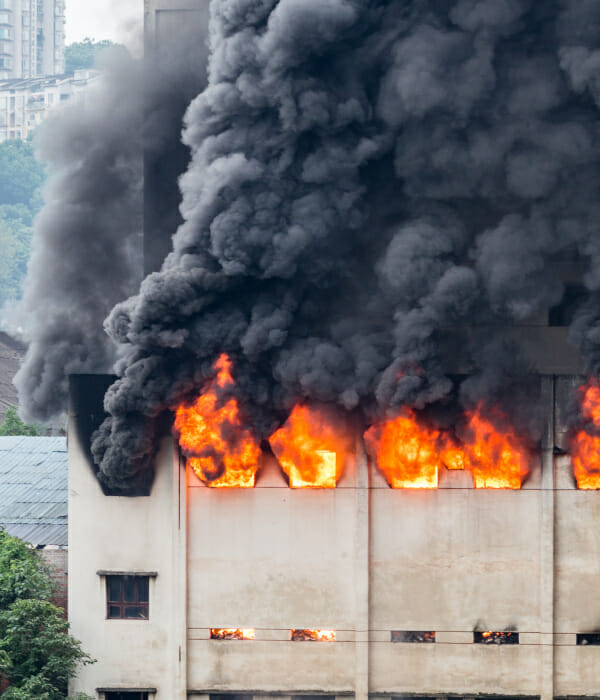
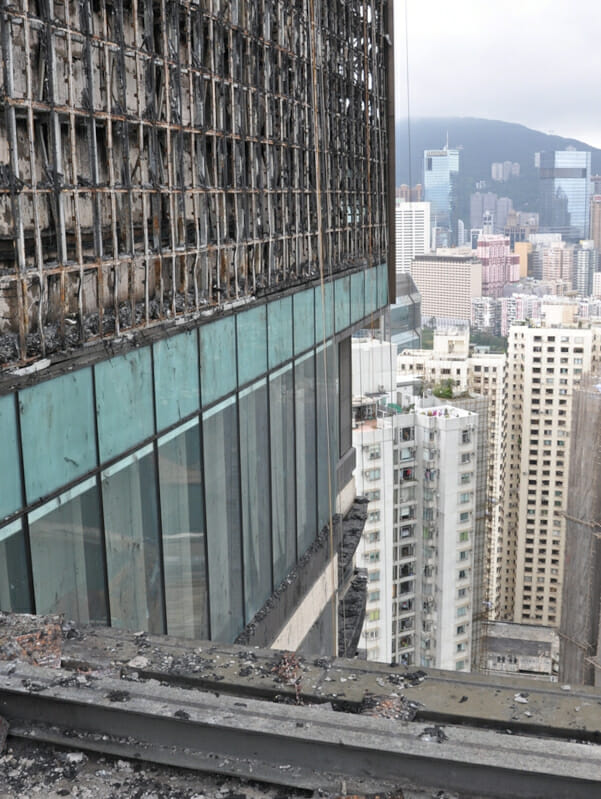

Examples of Typical cases
If you would like to know if we can help, please fill out our enquiry form or contact Sarah Hooton, James Clarke and/or Tom Dale for more information, with any enquiries you may have.
The list below provides a few examples of cases which we regularly investigate, or have investigated in the past.
- Review of design documentation and compliance with the relevant legislation, statutory guidance and applicable standards
- Investigation of fire spread over fire resisting compartment walls in roof voids
- Investigation of fire spread past fire resisting cavity barriers within external wall voids
- Investigation of fire spread within external façade materials during refurbishment activities
- Investigation of fire spread through fire resisting compartment floors via a service shaft
- Investigation of external wall fire safety provisions in high-rise residential buildings
- Assistance in criminal proceedings relating to the adequacy of the fire risk assessment undertaken as part of the Regulatory Reform (Fire Safety) Order 2005
HOW DOES HAWKINS INVESTIGATE FIRES AND FIRE ENGINEERING CASES?
1
Consultation
We like to discuss with you before we conduct any work, to establish how we can add value to the case. These discussions help us to understand your requirements, as well as determining how much information is already available, including for example, information relating to fire safety provisions, system specifications, service and maintenance records, first-hand witness accounts, photographs, and videos.
2
Inspection
We are happy to provide you with an estimate of the cost of conducting a forensic investigation. If required and with your agreement, we will arrange to visit the scene to inspect the building and/or scene of the fire. We can determine with your assistance the best possible ways to inspect the building and carry out the necessary forensic investigations.
3
Evidence
Wherever possible and relevant to the case, we will retain exhibits for examination. By retaining materials from the scene of a fire or an undamaged building, we are provided with a future opportunity to test and examine using a range of equipment, tools and tests. This could include fire testing carried out by third party laboratories to specified standards and industry guidance.
4
Conclusion
Once our examination is complete, we aim to discuss our findings with you and prepare a report containing a detailed account of our investigation, conclusions, and where appropriate, expert opinion, further work or advice.
SPEAK TO ONE OF OUR EXPERTS
Related areas of expertise
Fire Stop & Spread
The spread of a fire within a building, or to an adjacent property, can have a significant impact on the safety of occupants and on the financial implications – both in terms of the remediation of the property and loss of business.
Building Fires
Fires occurring within buildings will often result in significant damage to both the structure and contents. If you are dealing with a building fire and want to know what has caused it, you need a forensic investigator.
Vehicle, Plant & Machinery Fires
Vehicle, Plant and Machinery share common operational systems such as internal combustion engines, hydraulic, cooling and lubrication systems, as well as electronic control systems to ensure safe operation of them.
Civil & Structural Engineering
Whether it is a subsiding foundation, a collapsing structure or a flooding drainage system, it can be hard to understand at first glance what part of a large system has gone wrong.



